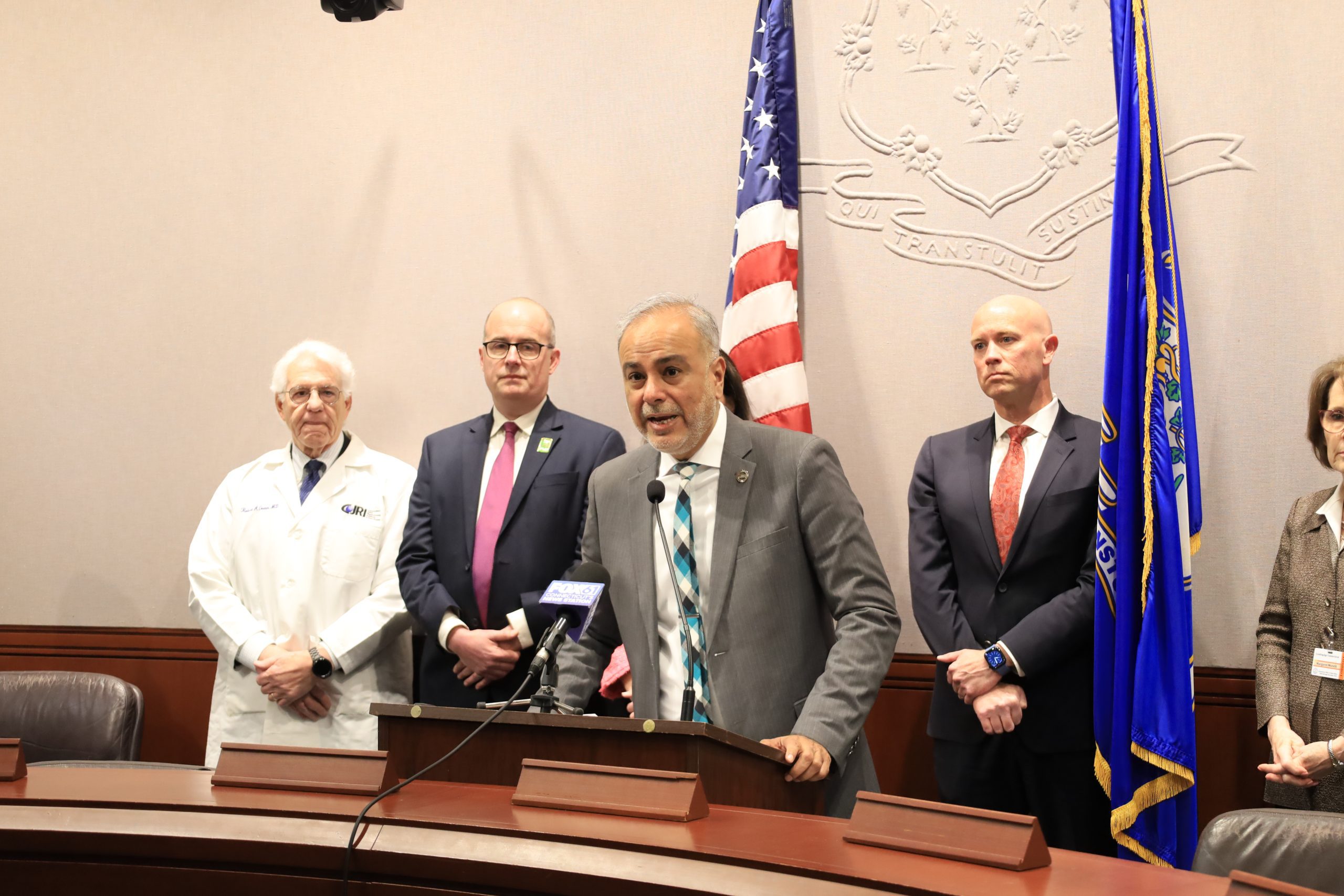HARTFORD After continued concerns from hospitals, doctors and behavioral health providers about the security and confidentiality of patient health data, lawmakers are calling for more debate about what records will be included and accessed the Interchange of Health Information of the states.
During a news conference Monday, state Sen. Saud Anwar, D-Windsor South, said the comprehensive Senate bill would establish a task force to determine who would be responsible for data breaches and review other policies adopted by the exchange on the health of patients. care records.
At the heart of this, while we want all the data, it’s important that the patient’s health information is protected. And we can really be sure that everything is being done to make sure that we take care of it, Anwar said.
The health information exchange, also known as Connie, was launched three years ago. It operates as a nonprofit organization, although its executive director, Jenn Searls, and board chair Sumit Sanjnani are employees of the state Office of Health Strategy.
The nine-member Board of Directors includes four government officials, as well as four representatives from the hospital and insurance industries ProHealth Physicians, a subsidiary of UnitedHealth Group; Yale New Haven Health System; Griffin Hospital, a subsidiary of Planetree International and an affiliate of the Yale School of Medicine; and Elevance Health, the insurer formerly known as Anthem. The board also includes a patient advocate, Jose Crespo, who serves on the New Haven Board of Aldermen and is an employee of Cornell Scott Hill Health Center.
Under state law, all health care providers must participate in the states’ health information exchange. However, questions about the transparency of who the exchange shares information with have persisted since its inception.
Twenty-eight health care organizations submitted testimony to the state Legislature’s Public Health Committee in March outlining their current concerns about how the exchange works and where their responsibility lies.
One of the main issues raised is what is called specially protected information, behavioral health and substance use disorder records. The organizations pointed to their inability to separate this highly sensitive information from other health records added to the exchange. They suggested that providers handling this information should be exempt from participating.
Last year, behavioral health providers said they did not want to share private mental health information with the exchange.
Providers also highlighted reproductive health records as another area that requires more confidentiality and protection.
A patient can request that their data be removed from the exchange, but not everyone agrees that this is the best way to build the system.
Some people may think they should turn it on, rather than turn it off. So that’s a conversation that’s also worth having, depending on the patients, Anwar said.
Paul Kidwell, senior vice president of policy at the Connecticut Hospital Association, told the CT Examiner that a patient’s health care information still goes to Connie, even if they opt out, and that it’s a liability de Connies remove this information from the exchange. That raised concerns about the level of care to ensure those records were no longer accessible, he said.
Anthony Yoder, a member of the Connecticut chapter of the American College of Physicians, told the CT Examiner that ultimately, the patient should be in control, regardless of how the system works.
However you do it, patients must take ownership of their data. If they are opting out, clearly they must have a mechanism to do so. If they choose to participate, they need to have a mechanism to do so, Yoder said.
Anwar said the task force will also determine liability for data breaches.
Who will be notified if this data is breached? Who will communicate with patients about this? And who will be legally responsible? So there are so many parts of this problem that are unresolved, he said.
It is unclear who would be part of the task force, but Anwar said it would include all stakeholders, along with representation from the Office of Health Strategy.
Connie’s Executive Director Jenn Searls told the CT Examiner Thursday that the Health Information Exchange already has robust security and privacy controls and protocols, including disaster recovery plans for cyberattacks, and conducts an annual security audit with a independent company
Prioritizing the safety of millions of patients, Connie has implemented protocols that are more rigorous than legally required, Searls said in a statement. We believe this level of protection exceeds what other healthcare data organizations typically offer, providing greater peace of mind to healthcare providers and patients across the state.
#Lawmakers #seeking #tighter #controls #state #health #data #sharing
Image Source : ctexaminer.com
